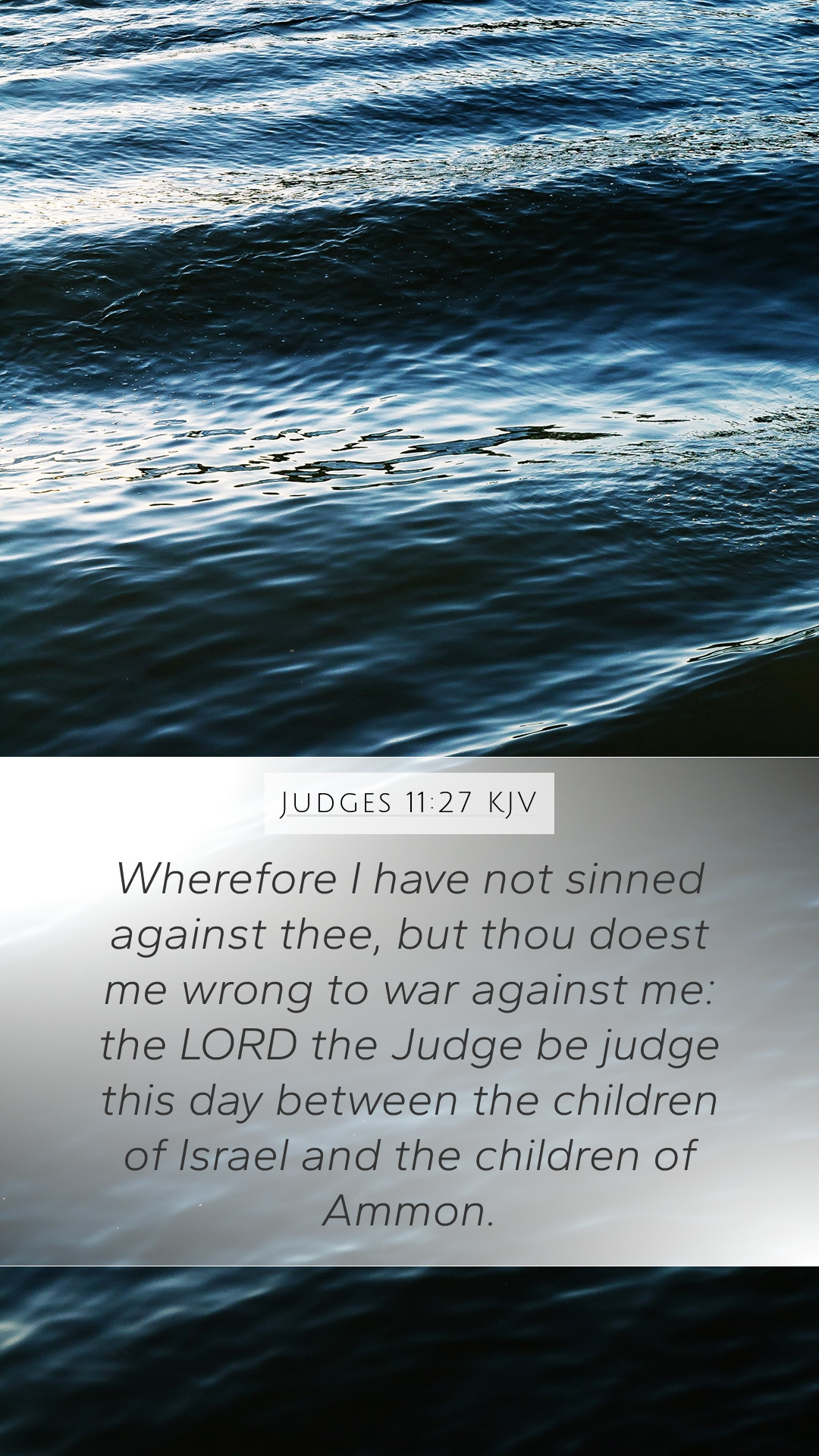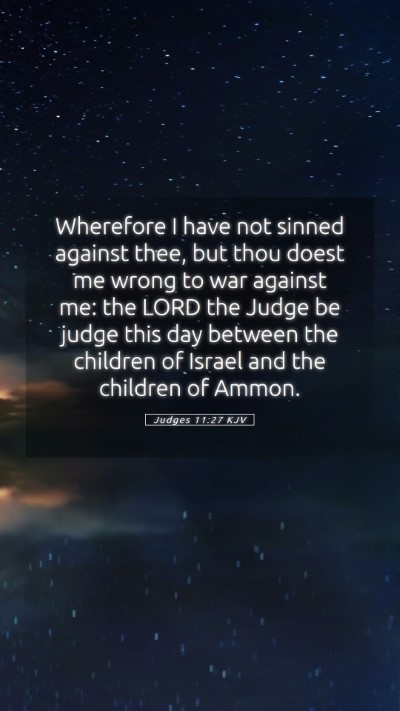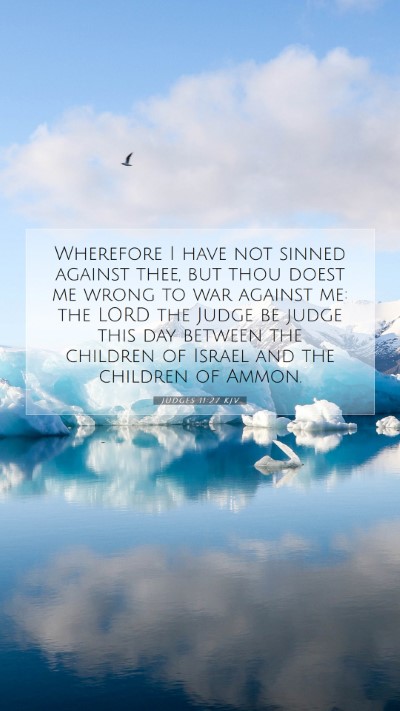Understanding Judges 11:27
Verse: "And I have not sinned against you, but you are doing me wrong by waging war against me. Let the LORD, who is the Judge, decide today between the Israelites and the Ammonites." (Judges 11:27, NIV)
This verse captures a pivotal moment in the conflict between Jephthah and the Ammonites. It highlights themes of justice, divine authority, and human conflict, giving us rich material for Bible verse interpretations and Bible study insights.
Summary of Meaning
The verse reflects Jephthah's appeal to divine judgment, emphasizing innocence on his part amid the accusations from the Ammonites. This illustrates the meaning of Bible verses as it shows how individuals sought divine intervention in disputes, a common practice in ancient Israelite culture.
Commentary Insights
-
Matthew Henry's Commentary: Henry emphasizes Jephthah's assertion of his innocence, portraying him as a leader appealing to God for justice. His statement indicates reliance on divine authority rather than mere human judgment, reinforcing the idea of Biblical exegesis.
-
Albert Barnes' Notes: Barnes notes the significance of Jephthah's plea to the LORD as the ultimate Judge. He elucidates that this shows trust in God’s righteous judgment over personal or tribal vindication, aligning with the theme of Bible verse explanations.
-
Adam Clarke's Commentary: Clarke provides historical context, noting that the conflict stemmed from longstanding disputes over land. He indicates that Jephthah's highlighting of his innocence serves not only as a defense but as a reminder of the LORD's sovereignty, which is critical for Scripture analysis.
Thematic Exploration
Inherent in Judges 11:27 are profound themes relevant for both past and contemporary readers:
- Justice and Righteousness: Jephthah's appeal reminds us of the need for justice in conflicts, encouraging us to seek divine guidance in our own disputes.
- Divine Sovereignty: The LORD's position as judge underscores God’s ultimate authority—relevant to understanding Scripture and applying Bible verses to daily life.
- The Role of Leadership: Jephthah’s leadership style showcases a model that combines appeal to higher moral grounds with practical leadership.
Application in Today’s Context
The principles derived from this verse can be utilized in modern Bible study groups and discussions:
- Conflict Resolution: Applying biblical principles like Jephthah's approach can offer insights into resolving personal disputes through prayer and seeking divine wisdom.
- Seeking Justice: This verse encourages individuals to stand firm in their integrity while relying on God's judgment rather than getting embroiled in petty human disagreements.
Cross References
Judges 11:27 relates to several other biblical passages that illuminate its context:
- Psalm 7:8: "Let the LORD judge the peoples. Judge me, O LORD, according to my righteousness, according to my integrity, O Most High." - A plea for divine justice.
- Numbers 21:21-35: Discusses Israel's historical conflicts with enemies, providing background for the territorial disputes Jephthah references.
- 2 Chronicles 19:6-7: "And said to the judges, 'Consider what you do, for you judge not for man but for the LORD…'" - Highlights the principle of divine justice.
Conclusion
Judges 11:27 serves as a rich reservoir for Bible study resources and Bible study lessons, providing understanding of how biblical figures navigated complex human relationships with divine faith. This verse exemplifies the importance of appealing to a higher standard in our interactions with others, urging believers to trust God as the ultimate judge in life's conflicts.


